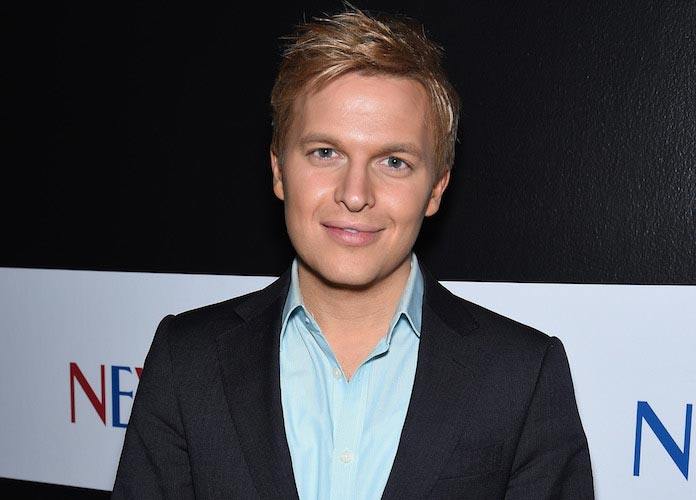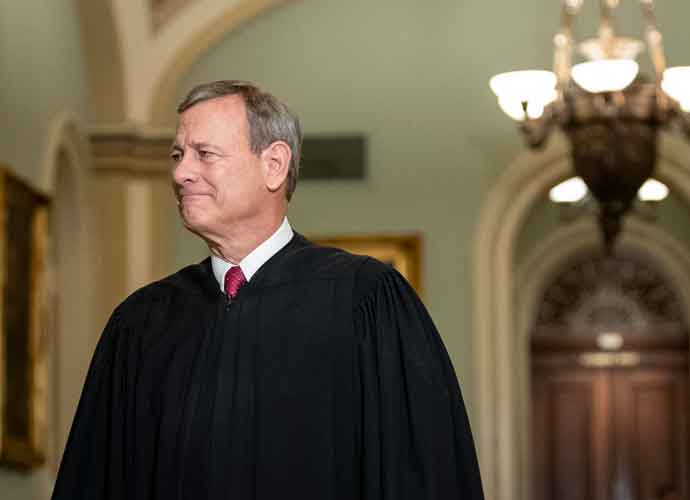Ronan Farrow Pens Blistering Essay About Father Woody Allen; Director Addresses Essay At Cannes
Ronan Farrow, the son of Woody Allen and Mia Farrow and brother of Dylan Farrow, wrote an essay condemning his father for his alleged past actions and for Hollywood for turning a blind eye.
Ronan Farrow On Woody Allen
Allen is currently at the Cannes Film Festival, where his latest film, Cafe Society, opened the festivities Wednesday night. The fact that Allen’s career has not seemed to suffer in the aftermath of the allegations of child sexual abuse – including Dylan’s more recent essay on the matter – has vexed her elder brother. In his own essay, released to coincide with Cafe Society‘s world premiere, Farrow targets his father, the Hollywood industry that continues to prop us his work, the actors who work for him and the members of the media, who, according to Farrow, give his father a free pass.
“I believe my sister,” wrote Farrow in his essay for The Hollywood Reporter, referring to the alleged incident that occurred when she was a child. “This was always true as a brother who trusted her, and, even at 5 years old, was troubled by our father’s strange behavior around her: climbing into her bed in the middle of the night, forcing her to suck his thumb — behavior that had prompted him to enter into therapy focused on his inappropriate conduct with children prior to the allegations.”
Farrow went on to explain that the reason why Allen was never formally convicted of any crime has less to do with any lack of evidence, but more to do with his mother’s desire to protect his sister.
“In a rare step, the prosecutor announced publicly that he had “probable cause” to prosecute Allen, and attributed the decision not to do so to “the fragility of the child victim,” Farrow noted. “My mother still feels it was the only choice she could make to protect her daughter. But it is ironic: My mother’s decision to place Dylan’s well-being above all else became a means for Woody Allen to smear them both.”
Since Allen was never prosecuted, it has allowed him and his career to remain virtually unscathed. Farrow finds it indefensible for people in Hollywood to continue to pay Allen money for his projects and for actors to sign up to star in them.
“Amazon paid millions to work with Woody Allen, bankrolling a new series and film. Actors, including some I admire greatly, continue to line up to star in his movies. ‘It’s not personal,’ one once told me. But it hurts my sister every time one of her heroes like Louis C.K., or a star her age, like Miley Cyrus, works with Woody Allen,” Farrow wrote. “Personal is exactly what it is — for my sister, and for women everywhere with allegations of sexual assault that have never been vindicated by a conviction.”
Throughout his essay, Farrow saves his most biting criticism for the media, which he says has willingly complied with Allen’s public relations machine.
“Being in the media as my sister’s story made headlines, and Woody Allen’s PR engine revved into action, gave me a window into just how potent the pressure can be to take the easy way out,” said Farrow, who claimed Cafe Society stars Jesse Eisenberg and Kristen Stewart wouldn’t have to answer for working with his father. “Every day, colleagues at news organizations forwarded me the emails blasted out by Allen’s powerful publicist, who had years earlier orchestrated a robust publicity campaign to validate my father’s sexual relationship with another one of my sibling.”
Farrow added later in his piece of the media’s disinterest in covering his sister’s allegations, calling it patently dangerous. “That kind of silence isn’t just wrong. It’s dangerous. It sends a message to victims that it’s not worth the anguish of coming forward,” Farrow wrote. “It sends a message about who we are as a society, what we’ll overlook, who we’ll ignore, who matters and who doesn’t.”
Allen has, perhaps in part due to Farrow’s essay, had to face the reality of his daughter’s lingering allegations while promoting Cafe Society at Cannes. There was even a joke made at his expense prior to the screening of his film. Unruffled and unbothered as usual, Allen brushed off the jokes. And, as for Farrow’s essay, Allen compared it to a bad review and vowed to never read it.
“I never read anything about me, these interviews I do, anything. I said everything I had to say about that whole issue in The New York Times. I have moved so far past it. I never think about it. I work. I said I was never going to comment on it again, ” Allen told Variety. “I never read what you say about me or the reviews of my film. […] I don’t like to hear that a critic thinks my film is a masterpiece and I don’t like to hear that a critic thinks my film misses.”
RELATED ARTICLES
Get the most-revealing celebrity conversations with the uInterview podcast!




 Click here for the Met Gala 2016 Best Dressed Slideshow
Click here for the Met Gala 2016 Best Dressed Slideshow




Leave a comment